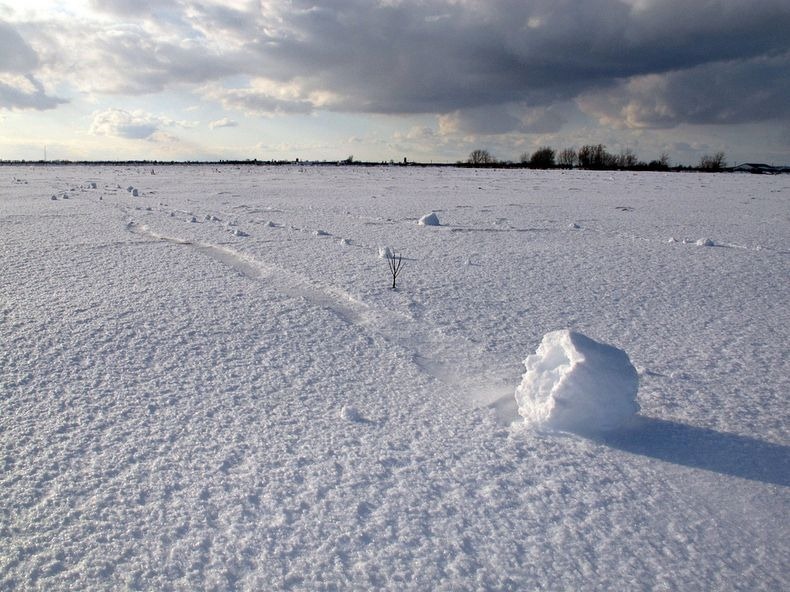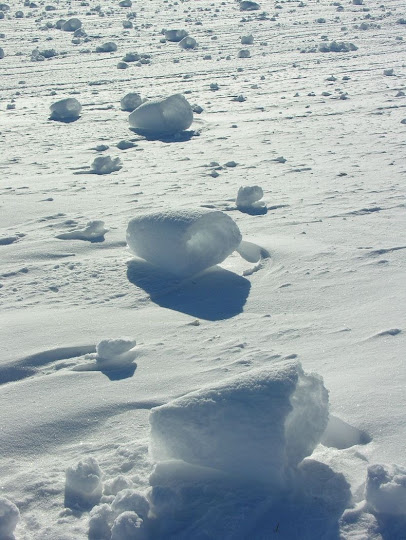Snow rollers happen with the combination of lying snow and high wind speeds, mostly in North America and Northern Europe, and they can be as small as a tennis ball or they can be as large as two feet across – depending on how strong the wind is and how smooth the surface of the snow is. Gravity can also assist snow roller formation. An inclined surface often needs just a little shove from the wind to get snow rollers in motion.

Frank Barrow, a lecturer in meteorology at the Met Office, described the exact science behind the formations.
They start off with a nice thick layer of snow, with the top snow just on the point of melting either because of general temperature or sunshine on the surface. The top snow layer becomes a bit sticky and you then need a fairly strong wind. The sticky layer can be peeled off the colder and more powdery snow underneath by the wind, forming a roll.
The rolls are not hollow to begin with, as a number of layers build up as the roll gets larger the further it is blown. However, the inner layers are weaker as they are formed first and are easily blown away. Eventually the rolls become too big to be blown any further or come to rest against vegetation or at the bottom of a hill.














Source
